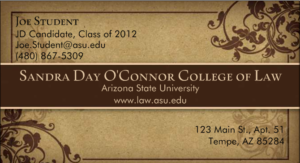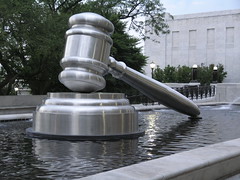The Arizona Bar Exam has three sections.
- Multistate Bar Exam (MBE): 200 multiple choice questions (6 hours), 50% of your score
- Multistate Essay Exam (MEE): 6 essay questions (3 hours), 30% of your score
- Multistate Performance Exam (MPE): 2 practical questions (3 hours), 20% of your score

You have to get a score of at least 410 out of 600 to pass the bar. The results of the exam will not be out until October; however, five weeks after the exam, we received our MBE scores in the mail. It is possible to bomb the MBE and still pass the bar, and it’s possible to ace the MBE and still fail. I decide the stress of not knowing anything was less than the stress I would feel if I opened my MBE score and I wasn’t happy with the result. So, when my score arrived, I put it in a drawer instead of opening it.
A lot of people heard about what I did and couldn’t believe that I had enough self-restraint to not open the envelope. Many of them asked if they could open it or at least hold it up to a light bulb so they could know what it says. These people are all banned from my home until after the final bar exam pass list is posted.
Fortunately, I have significant experience with being academically stubborn. During law school, I never checked my grades after the first semester. After each semester was over and final grades were posted, I emailed the assistant dean of the law school. He checked my grades for me and let me know that I passed and that I was in good academic standing. I never knew what my GPA or class rank were and it made me a happier law student. My focus shifted to learning the material and my stress level dropped significantly. I have a copy of my final transcript on my computer in case a future employer wants to see it, but I’ve never looked at it.
I decided not to open my MBE score because knowing this information would not give me any definitive answers about my bar score. It’s a bit cruel that the powers that be tell us what 50% of our score is and make us sweat it for another 5 weeks. I’d rather take the bar exam and forget about it until the official pass list is posted.
To anyone who would not react well if they score below average on their MBE, I recommend not opening your MBE score when it arrives. All that matters is that you get the total score you need to pass.



